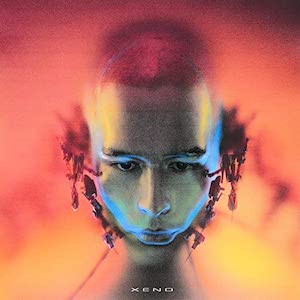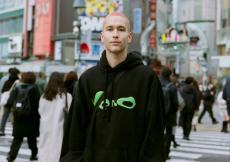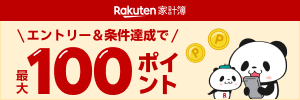rei brown 『Xeno』 インタビュー/Interview with rei brown about “Xeno”
NeoL / 2023年1月23日 17時0分
神戸で生まれ育ち、現在はニューヨークを拠点に活動する、新進気鋭のプロデューサー/アーティストのrei brown。昨年リリースされたデビューアルバム『Xeno』は、90年代のポップロックから、ダンス、テクノ、さらにはニューメタルまで、多彩なエレメントを取り入れ、そのジャンルレスなサウンドが大きな話題を呼んだ。ここでは12月に行われたkeshiのジャパンツアーでオープニングを務め、母国である日本の音楽ファンを魅了したことも記憶に新しい彼にリモートインタビューを行い、音楽活動を始めた経緯やデビュー作に込めた思いなどをたっぷりと語ってもらった。
→ in English
――まずはバックグラウンドからお聞かせください。出身はどちらですか?
rei brown「日本の神戸出身です。18歳まで、ほとんどの時間を神戸で過ごしました。それからボストンのバークリー音楽大学に進学しました」
――音楽一家に生まれたのですか?
rei brown「両親はミュージシャンではないのですが、いつも音楽を聴いていた気がします。母は以前、キーボードやピアノを弾いていたので、音楽の素養がありました。でも、私が子どもの頃に受けた影響は、車の中で音楽を聴いたりしていたことだと思います。母は画家でもあったので、全体的にアートの影響は多かったです。よく美術館などに連れて行ってくれて、絵画や美術を通してたくさんの影響を与えてくれました」
――特定のジャンルに当てはめられないようなサウンドが魅力的ですが、子どもの頃はどんな音楽を聴いて育ちましたか?
rei brown「いろんな音楽を聴いて育ちました。幼い頃は父が車でグリーン・デイやファットボーイ・スリムを聴いていたのを覚えています。クイーンやホイットニー・ヒューストンもよくかかっていました。学校ではDragon AshやORANGE RANGEなど邦楽をランダムに聴いていたので、かなりミックスされた影響を受けていたし、何でも聴いて育ったという気がします。聴きたい曲はすべてインターネットで見つけることができたので、自分の中では地域性もなく、インターネットで世界にアクセスできる環境で育ったというか。その時点で、すでにボーダーレスでジャンルレスだったんです。何を検索しようかな、という感じでした」
――進学先にバークレー音楽大学を選んだ理由は?
rei brown「子どもの頃から歌ったりはしていたのですが、中学生になるまで真剣には考えていませんでした。(中学生になって)ギターを手にして、ギターのレッスンを受けたり、曲を書いたりし始めたんです。でも、バークリーに行ったきっかけは2人の先輩が進学したことでした。校内でもかっこいいミュージシャンという感じの存在だったんです。音楽が得意な彼らがバークリーに行ったんだから、自分も行くべきだな、と思いました。彼らも行ったし、ジョン・メイヤーも行ったし、みたいな(笑)」
――専攻は?
rei brown「ソングライティングです。音楽を作りたくて、SoundCloudにアップしていたんです。すでに自分がやっていること、つまりは音楽を作り、曲を作り、自分でプロデュースするということと宿題が被りそうな専攻を選びました」
――なぜニューヨークを拠点にしたのですか?
rei brown「友だちがニューヨークに住んでいたので、よくボストンから会いに行っていたんです。その時に、自分はボストンではなくニューヨークに住むべきだな、と感じて。卒業から一年後にニューヨークに移ろうと思いました」

――「Xeno」は本当に美しい曲で、多くの人の心に響くと思います。“What am I made of that you’re afraid of (私を形作る何が君たちを怖がらせるの?) / Am I contagious? (私は伝染するの?)”という歌詞を聴いて、どこにいても自分の居場所に感じられないと話していた、ミックスルーツの友人を思い出しました。
rei brown「歌詞の“伝染する”という部分には、深い感情がこもっています。奇妙なことに、この曲はコロナ禍に書いていたので、とても今日的な意味を帯びていました。君はアジア人だからコロナにかかっているはずだ、とか言う人たちがいたんです。それに、成長する中で、私がクィアであることを知っていた信心深い人たちから、他のクィアの人と知り合ってほしくないと思われていた時期がありました。私たちは実質的に離されてしまって、まるで自分たちに伝染性があるか、あるいは自分たちが病気であるかのように感じさせられました。お互いから隔離させられる必要があったんです。だから、この“伝染する”という言葉は、実は私にも非常に奇妙かつ酷い形で影響を与えました」
――こんなにも私的な曲を書くということは、どのような経験でしたか?
rei brown「最初はセラピーみたいなもので、他の誰のためでもなく自分自身のために書いていました。ですので、自分の作品をさほど厳しく批評していなかったように思います。それよりも、これが自分の気持ちで、自分はこのように記憶しているんだ、という感じでした。こんなにも深く私的な曲なのに、ニューヨークでの単独公演で歌ったら観客がコーラス部分を大合唱してくれたんです。とても深くて私的な曲が彼らにも影響を与え、つながりを感じてくれたのだと気づいて、私は泣き出してしまいました。自分が他の誰かにとって意味のある存在になれて、とても満たされた幸せな気持ちになったんです。文字通り“異なるもの”を意味する『Xeno』と題された曲なのに、みんなが同じ空間にいて、つながりを感じることができて。あの曲がみんなを一つの場所に集めて、一緒にあのコーラスを歌うことができたんです。私たちは人とは違っていたけれど、今は一緒にここにいて、安全だと感じ、お互いを結びつけるものがある、そんな皮肉な状況でした」
――このアルバムはとても映画的で、曲を聴いているとシーンが思い浮かぶような気がしました。曲作りででは、どのようなことからインスピレーションを得たのですか?
rei brown「子どもの頃から『Xファイル』をよく観ていて、『世にも奇妙な物語』や『トワイライト・ゾーン』や『ブラック・ミラー』も観ていました。アルバムの大半は非常に『ブラック・ミラー』的というか、各エピソードはそれぞれ違うのだけれど、そこにはディストピアや近未来的なテーマが漂う世界観が広がっているんです。とてもたくさんのインスピレーションがあったので思い出せないけれど、確実にSFからは影響を受けていました」
――ご自身の言葉でこのアルバムを説明するとしたら?
rei brown「他の人には意味がわからないかもしれないけど、私は一時期このアルバムについて、ブリトニー・スピアーズとバックストリート・ボーイズとリンプ・ビズキットがコラボレーションして完成した、『Xファイル』か『ブラック・ミラー』のとあるシーズンのサウンドトラックと説明して楽しんでいました(笑)」
――「Thinking Bout You」でJojiと再びコラボレーションすることになった経緯は?
rei brown「『Thinking Bout You』は、かなり前に書いた曲です。2018年か2019年くらいかな。Jojiと『Normal People』を手がけたときに、その頃に自分が作っていたものをスタジオで流していたんです。『Thinking Bout You』をかけたら、すぐに『その曲に参加したい』と言われました」
――Jojiとは幼なじみなんですよね。二人とも才能豊かですが、昔から一緒に音楽を作っていたんですか?
rei brown「一緒にGarageBandでビートを作ったりしていました。あとは週末や夏休みなど退屈で仕方がない時に、くだらない曲を作って送り合うことでコミュニケーションを取ったり。高校や中学の頃、いつも一緒に音楽を作っていました」
――本作ではkeshiとも再びコラボレーションしていますが、彼の北米ツアーと東京での2公演を含むアジアツアーではオープニングを務めたそうですね。母国である日本でライブをするのは、どんな気分でしたか?
rei brown「長いこと日本から離れていたし、プロとして仕事で帰ってきたこともなかったので、とても美しい、素晴らしい時間になりました。rei brownとして帰ってきて、プレスやファン、フォトグラファーなど、一緒に仕事をしたいと思ってくれる方たちからのサポートを感じることができたんです。日本の人たちは自分を気にかけてくれて、私という日本人がこの仕事をしていることを誇りに持ってくれます。それは本当に心温まるもので、居場所がないと感じていた頃の苦くて悪い記憶とは異なる体験でした。『おかえりなさい』とか『誇りに思っているよ』と言われたような気がしたんです。日本にできた基盤をもっと大きくしたいので、戻ってくるべきだと感じさせられました。それはコミュニティのようなもので、私は日本が大好きなので、もっと日本を掘り下げて人々とつながり、より多くの人たちと仕事をしたいと思っています。日本には才能が溢れていると思います」

――最近ではあなたやJoji、keshi、ジャパニーズ・ブレックファスト、Mitskiをはじめとする、アジア系のアーティストが活躍しています。音楽シーンの中にアジア系のコミュニティがあるように見受けられますが、この状況についてはどう感じていますか?
rei brown「日本育ちの自分にとっては、複雑というか、(感じ方が)違うんです。私はアジアの音楽を聴いて育ち、海外の音楽にしても、カナダのアーティストで日本人のハーフでもあるジャスティン・ノヅカにすごくはまっていた時期があって、海外の音楽といえばジャスティン・ノヅカというイメージだったりしたんです。つまり、もっとアジアのアーティストが活躍する姿が見たい、というような憧れがなかったんですよね。日本中で活躍する(日本人の)アーティストを見て育ったわけですから。アメリカに引っ越した頃には既に88risingが人気だったし、アジア系の人たちがどんどん活躍し始めていました。大学の頃はトロ・イ・モアやTOKiMONSTAもいたし… あまりメインストリームの音楽を聴いてこなかったこともあって、自分が夢中だったジャンルでは常に才能あふれる有色人種の人々が活躍していました。でも、振り返ってみると確かに進歩したように思います。子どもの頃は、アメリカには有名なアジア系アーティストがあまりいませんでした。私たちは大きな進歩を遂げており、多くの素晴らしい有色人種のアーティストが脚光を浴びている現状は見ていて本当にうれしいです」
――音楽以外では、どのようなことからインスピレーションを受けていますか?
rei brown「さまざまな形で、常にファッションからインスピレーションを得ています。最初は身体醜形障害がきっかけでした。子どもの頃から、自分に合う服がないように感じていたんです。それからヨウジヤマモトのパンツを買ったら、自分にとてもフィットして似合うような気がしました。そしてファッションブランドをリサーチしたいと思うようになり、パターンやシルエットなどに深くはまりました。夢中になるにつれてサステナビリティや地球についても考えるようになり、ワークウェアやサステナブルな服、耐久性があって長く着られるものに興味を持って、古着やアップサイクルなどにつながりました。90年代のいろんなものが復活しているので、ある意味、このアルバムにも関係しています。曲の多くは90年代やSFの影響を受けていますが、90年代やY2Kのファッションも復活していて、私はその多くにインスパイアされています。
また、映画や映画のサウンドトラック、アート、建築など、すべてのものからインスピレーションを得ているように思います。意識してはいなかったのですが、私は安藤忠雄の作品に囲まれて育ちました。クレイジーな建築に囲まれて育ったわけですが、物理的な空間との関わり方は、建築や都市デザインに影響されるものですよね。音楽や映画と同じように、神戸の美味しい食べ物や素晴らしい建築にも恵まれていたように思います。それによって客観的に良いセンスを与えられたというよりも、たくさんの思いが注がれたもの(に囲まれて育った)おかげで、自分の作品にもたくさんの思いを注ぐようになったのだと思います」

――これからの活躍も楽しみです。今後の予定は?
rei brown「実は4週間後に、またkeshiのヨーロッパツアーに同行するかもしれないです(笑)。あとはマディソン・スクエア・ガーデンとLAのザ・フォーラムで行われるJojiのライブに参加します。1月上旬にはLAに行って、Lecx Stacyをはじめとするプロデューサーと作業する予定です。マディソン・スクエア・ガーデンでのライブまでに、たくさんの新曲ができるといいなと思っています」
――日本のファンも楽しみにしていると思います。
rei brown「日本のファンのことが大好きだし、自分の音楽を聴いてくれて、とてもうれしいです。これからはもっと彼らと交流して、また日本でライブをして、コミュニティを築いていきたいです」

photography Marisa Suda (IG)
text nao machida

rei brown
『Xeno』
Now on Sale
https://reibrown.bandcamp.com/album/xeno
rei brown
https://www.reibrown.com

――We would like to start by asking you a little bit about your background. Where are you from in Japan?
rei brown: I'm from Kobe, Japan. That's where I spent most of my time growing up until I was 18. Then I left for college and went to Berklee College of Music in Boston.
――Are you from a musical family?
rei brown: My parents didn't work as musicians, but I guess they were always listening to music. And my mom used to play keyboard and piano, so she had a musical background. I think growing up, the influence was just listening to music in the car and stuff. But my mom was also a painter, so there was a lot of art influence in general. My mom would take me to art museums and stuff like that. I think that was actually the big influence that I got from her, from painting and art.
――I love your music because it’s hard to label. What did you grow up listening to?
rei brown: I grew up listening to so many different kinds of music. Early on, I remember my dad playing Green Day or Fatboy Slim in the car, and we also had Queen or Whitney Houston playing in the car a lot. It was such a mixed influence because at school, I would also listen to Dragon Ash or Orange Range or a bunch of random Japanese music. I feel like I just grew up listening to everything. I could find any music that I ever wanted on the Internet. It wasn't even regional in my mind, I feel like I grew up with the Internet and had access to the world. So it was already kind of borderless and genreless. It was just like, what can I type in and find?
――Why did you decide to go to Berklee?
rei brown: I was definitely singing as a child, but I didn't take it seriously until middle school. I got a guitar and started taking guitar lessons and writing songs. But the reason I went to Berklee was that there were two senpai at my school who went to Berklee. They were kind of like the cool musicians at my school. I was like, oh, they were good at music and if they went to Berklee, that's where I should go. I was like, they went there, John Mayer went there [laughs.]
――What did you study there?
rei brown: I majored in songwriting. I wanted to make music and I was putting it up on SoundCloud. So I pretty much just picked my major where my homework would overlap with what I was doing already, which was just making music, making songs and producing them myself.
――What brought you to New York City?
rei brown: I had friends living in New York, so I would always visit from Boston. And when I got to New York, I thought I should be in New York, not Boston. So after a year of graduating, I felt that I needed to move to New York.

――“Xeno” is such a beautiful song and I think it speaks to a lot of people. The line “What am I made of that you’re afraid of / Am I contagious?” reminded me of a friend with mixed roots who told me that she felt she doesn’t belong anywhere.
rei brown: The contagious line is a deep loaded line for me. It was a weird thing, it was very relevant because I was writing it during COVID. People were saying, “You must have COVID because you're Asian.” But then also, growing up, there was a period where these religious people who knew I was queer and knew someone else was queer, and they didn't want you to know about each other. They essentially separated us. And that also felt like we're contagious or we're sick. We needed to be quarantined from each other. So the whole contagious line is actually there's so much of how that has affected me, too, in such a weird, f**ked up kind of way.
――How was it like for you to write such a personal song?
rei brown: It was almost like therapy first, it wasn't for anyone, it was for myself. So I don't think I was critiquing my own work too hard. I was more like, this is how I feel, this is how I remember these things. It is such a deep personal song, but when I played my New York headline show, the crowd was screaming the chorus with me. And I started to cry because something so deep and personal to me had affected them, too, and they had connected with it. I just felt so fulfilled and happy that you had meant something to someone else. Also, the song is literally called “Xeno” like "other," but I was in a room with people and I felt connected with it with everyone. It has brought us all together in this room and we were all chanting this chorus together is the irony of like, we were different but now we're all here together and we feel safe, and we have something to connect with each other.
――Your music is very cinematic in a way that I can imagine a scene listening to each song. What were some of the inspirations when you were writing songs for this album?
rei brown: I watched a lot of “X-Files” growing up, and I also watched “Yonimo kimyona monogatari” [Tales of the Unusual/Japanese TV series] and “Twilight Zone” or “Black Mirror” as well. So I think a lot about the album is very Black Mirror-esque, where each episode is kind of different but still in that universe of some dystopian or futuristic themes floating around. There were so many different inspirations that it’s hard to remember, but definitely sci-fi influences.
――How would you describe this album in your own words?
rei brown: I don't know if this makes sense to other people, but at one point, I really enjoyed describing it as a season of “X-Files” or “Black Mirror” but the soundtrack was done by collaboration with Britney Spears, Backstreet Boys, and Limp Bizkit together, like somehow the three of them collaborated on the soundtrack [laughs.]
――You collaborated with Joji again on “Thinking Bout You.” How did it come about?
rei brown: I had "Thinking Bout You" for a really long time, maybe 2018 or 2019. But when I had worked on “Normal People” with him, I was at the studio with him and I was just playing some things I had been working on recently. And I played “Thinking Bout You” for him and he was instantly like, “I want to be on that one.”
――It's amazing that you guys grew up together and you both are so talented. Did you grow up playing music together?
rei brown: Yeah, we did. We would make beats together in GarageBand. Or on weekends or during the summer break when we were really bored, we would just make stupid songs and send them to each other just to communicate even. In high school, middle school, we were always making music together.
――You also collaborated with keshi again on the album, and you opened for his tour in the states and Asia including two shows in Tokyo. How did you feel playing in your home country?
rei brown: My whole time in Japan was so beautiful and amazing. Because I had been away for so long and I never come back to Japan in a professional/business way. I was physically coming home, but to come home as rei brown and feel support from press or the fans, and even the photographers or people that wanted to work with me. People in Japan care about me or are proud that me, a Japanese person is doing this. That's really heartwarming and also different from some of the bitter, bad memories I had of feeling like I didn't belong. And this in some ways is like people saying, “Welcome home” and “We're proud of you.” That made me feel that I need to come back. Because there's now this foundation in Japan and I really want to grow that. It's like a community and I just want to dig my claws deeper into Japan and connect with people and work with more people in Japan, because I love Japan. And I think there's so much talent in Japan.

――Also, it’s nice to see many Asian musicians in the spotlight now, including you, Joji, keshi, Japanese Breakfast, Mitski and so on. It seems like there is a community within the music scene. How do you feel about that?
rei brown: It’s confusing or different for me, because I grew up in Japan. I grew up with Asian music, and even for music abroad, I went through a really big phase of Justin Nozuka who is a Canadian artist but he's half Japanese. So even my perception of foreign music was sometimes like Justin Nozuka. So I didn't grow up with the same longing of like, I wish I could see more successful Asian artists. I grew up seeing successful artists all over Japan. And when I got to America, I think 88rising was already a thing and you were starting to see more Asian people getting out there. And when I was in college, there was Toro y Moi and TOKiMONSTA… I think just the genres that I was into, there were always talented people of color, because I wasn't super into mainstream music anyways. But I do think we have made progress looking back. Growing up, when I would visit America as a child, there wasn't a lot of famous Asian artists out there. So we have progressed a lot and it's really cool to see so many good people of color that are getting the spotlight now.
――Not just music, but what else inspires you?
Rei Brown: I'm always inspired by fashion in a lot of different ways. At first, it was kind of a body dysmorphia thing that growing up, I didn't feel like clothes really fit me. And then I bought a pair of Yohji Yamamoto pants and it made me feel like I fit in these pants and I look good. They made me want to invest and research fashion brands, and that got me really deep into patterns and silhouettes and stuff. And then the more I got into, like sustainability and thinking about the Earth, I got into work wear and clothes that are made sustainable or that are durable and last a long time. That led to thrifting and upcycling and stuff. It's also related to the album, too, in some ways, because I feel like a lot of 90s stuff is coming back. And a lot of the music was influenced by 90s and sci-fi, but I feel like 90s fashion or y2k stuff are coming back and a lot of that really inspires me.
I also think I’m inspired by literally everything, movies, movie soundtracks, art, architecture… I didn't realize but I grew up around a lot of buildings by Tadao Ando. I grew up around a lot of crazy architecture, and how you engage with physical space is architecture and urban design. So like music and movie, I feel like I was blessed with good food and good architecture in Kobe, and it's just made me have not objectively good taste, but I think a lot of people put thought into things, and in turn made me put a lot of thought into the things that I create.

――We're so excited for your future. What's next for you?
rei brown: I might actually go on tour with keshi again for his Europe tour which will be in four weeks [laughs.] And then I have the Joji shows at Madison Square Garden and the Forum in LA. I'm going to be in LA in early January and work with Lecx Stacy and some other producers. So I'm hoping to have a lot of new music by the time I play Madison Square Garden.
――I’m sure your Japanese fans are excited for you.
rei brown: I love them and I’m so happy that they're listening to my music. I hope I can connect more with them and come back to play more shows, and build that community in Japan.

photography Marisa Suda (IG)
text nao machida
関連記事のまとめはこちら
https://www.neol.jp/music-2/
外部リンク
- また一緒に遊ぼうね。香取慎吾LIVE「Black Rabbit」
- rei brown 『Xeno』 インタビュー/Interview with rei brown about “Xeno”
- ベルリン屈指のクィア・テクノパーティHerrensaunaの首謀者、 CEM, DJ Salivaインタビュー /Berlin’s leading queer techno party, Herrensauna’s mastermind, CEM and DJ Saliva interview
- Interview with Dry Cleaning about “Stumpwork”
- ベルリン〈Tresor〉DJ Shufflemaster 『EXP』 LP3枚組再発/初デジタル配信。ジャケットのアートワークはSk8thing
この記事に関連するニュース
-
tHE GALLERY HARAJUKUにて、2025年1月2日(木)より、THEKLA KAISCHAURI個展「FRACTURED」を開催。
PR TIMES / 2024年12月25日 14時45分
-
スリーシェイク所属の早川大貴がクラウドネイティブ技術を推進するCNCF Ambassadorsに就任
PR TIMES / 2024年12月23日 10時45分
-
インバウンド向け相撲エンタテインメントショーホールTHE SUMO HALL日楽座OSAKA初の海外公演を実施!インドで大成功!
@Press / 2024年12月11日 15時0分
-
granumより東京都『TIB STUDIO』採択のご報告<English follows>
PR TIMES / 2024年12月11日 10時45分
-
"明らかな"に「obvious」を使うとイケてない理由 簡単な英単語を使いこなしてこそ世界で認められる
東洋経済オンライン / 2024年12月10日 16時0分
ランキング
-
1「精神的に楽な仕事」ランキング! 2位「事務」…1位は“単独行動”でこなせる仕事
オトナンサー / 2025年1月7日 20時10分
-
2マジで危険…。 信号待ちで「バイクのすり抜け」違反じゃない? 「マジで危ない」「クルマの後ろで待て」との声も 何がダメな行為なのか
くるまのニュース / 2025年1月7日 16時40分
-
3「門松」や「しめ飾り」はいつまで飾るべき? 一般ゴミとして処分できますか?
オールアバウト / 2025年1月7日 21時25分
-
4冬は寒いけど…フリースの服を着たまま「調理」しちゃダメ! なぜ?
オトナンサー / 2025年1月7日 22時10分
-
5「いつまで待たせるんだ!」若い女性店員に文句を言う迷惑客は“まさかの人物”だった…こっそり店長に“会社と名前”を教えた結果
日刊SPA! / 2025年1月7日 15時51分
記事ミッション中・・・
記事にリアクションする
![]()
記事ミッション中・・・
記事にリアクションする

エラーが発生しました
ページを再読み込みして
ください










